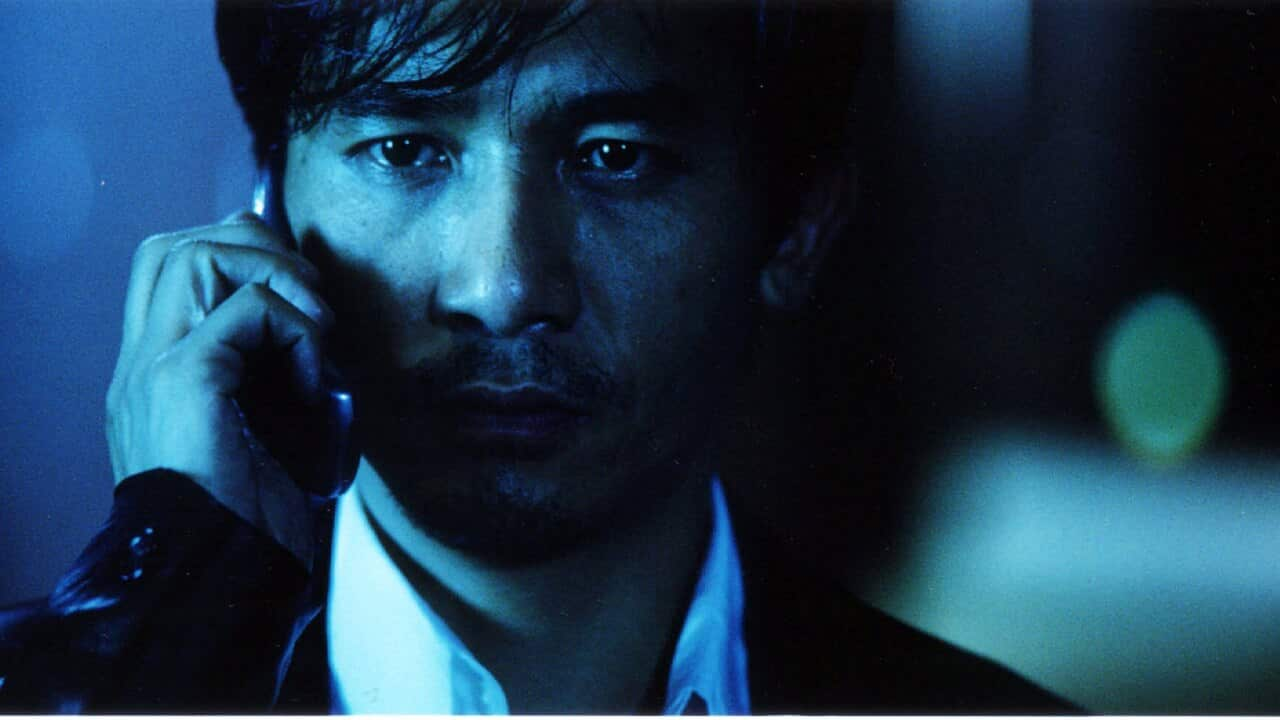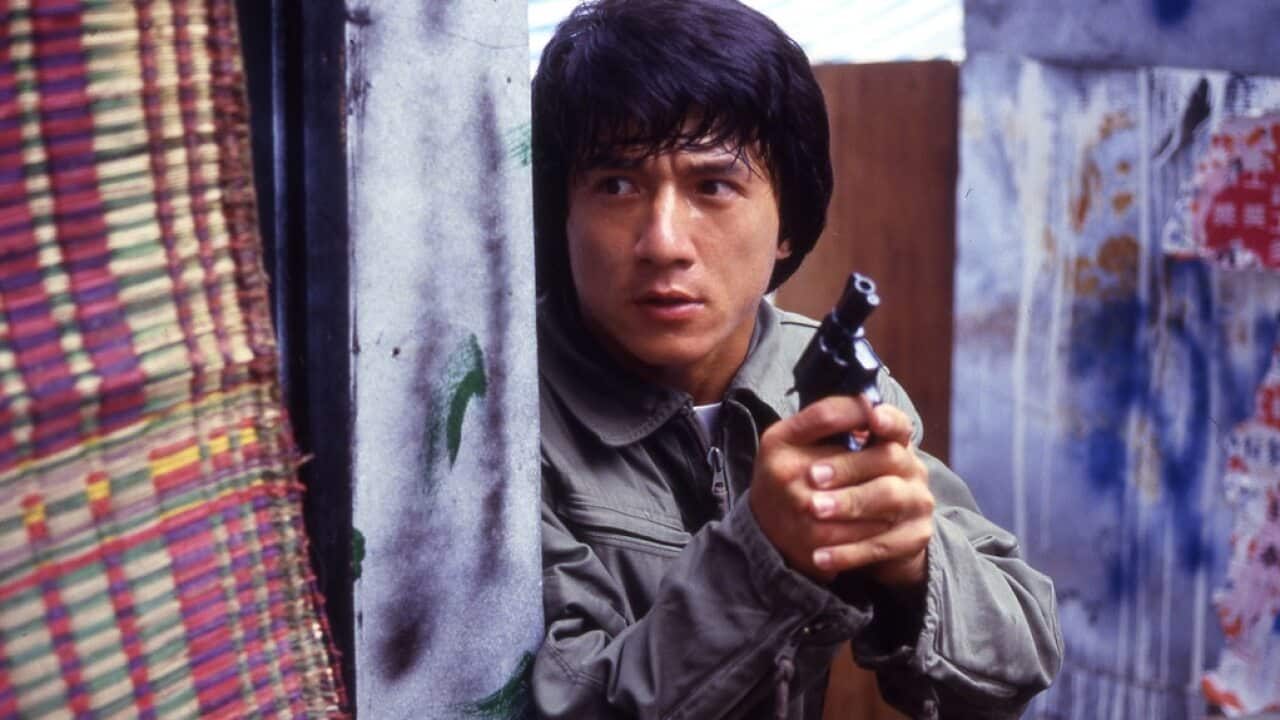Stop me if you’ve heard this one before: a law enforcement agency seeds deep cover operative into closed ranks of a vicious and paranoid mob boss, going to great lengths and taking even greater risks to get a man on the inside. Unbeknownst to them – but very much knownst to us – that same gangster has employed a similar tactic, putting one of his own in their ranks as a mole. Two parallel undercover stories emerge, with each spy trying to protect their own true identity while ferreting out their opposite number. Boundaries are crossed, loyalties are tested, and the inevitable body count is massive.
That is, of course the plot to The Departed, the Boston-set 2006 film starring Matt Damon and Leonardo DiCaprio that finally netted revered filmmaker Martin Scorsese a directing Oscar. But The Departed is a remake of 2002’s , a slick Hong Kong thriller co-directed by Andrew Lau and Alan Mak, and the Cantonese original is just as engrossing as Marty’s Beantown cover version – and arguably more so.
It’s like looking into a mirror
No offence to Marty, but the process of adapting Infernal Affairs to an American context didn’t change too much apart from the language. In the original, the great Tony Leung is Chan Wing-yan, later the DiCaprio role, infiltrating the Triad run by the ruthless Hon Sam (Eric Tsang bringing a less manic, more deadly energy than Jack Nicholson would later), while Andy Lau is Lau Kin-ming, the criminal infiltrating the Hong Kong cops. Without getting into spoiler territory, while specific cultural details change, beat for beat the films are nigh-identical. The most notable difference at first taste is simply length: Scorsese’s operatic film sprawls to 151 minutes, while Lau and Mak keep Infernal Affairs to a tight 101. Narratively, however, Infernal Affairs covers a decade, meaning our cross-purpose protagonists have plenty of time to get acclimatised to their fake lives. Paradoxically, Infernal Affairs is both more propulsive due to its tight run time, and more epic in its scope.
Narratively, however, Infernal Affairs covers a decade, meaning our cross-purpose protagonists have plenty of time to get acclimatised to their fake lives. Paradoxically, Infernal Affairs is both more propulsive due to its tight run time, and more epic in its scope.

Source: SBS On Demand
Three for the price of one
Plus, Infernal Affairs is a trilogy, with subsequent instalments taking their cues from that other great Italian-American filmmaker, Francis Ford Coppola, and his approach to the gangster genre. Infernal Affairs II (2003) is a prequel going into Chan and Lau’s early formative years, as well as the rivalry between Hon Sam and top cop Wong Chi-shing (Hong Kong acting veteran Anthony Wong), who will later send Chan undercover into Sam’s organisation. Infernal Affairs III (2003) actually runs in tandem to some of the events in the first film, going on to provide a coda for the entire saga that takes everyone to task for their sins. Whereas Scorsese merely killed off most of his ensemble, Lau and Mak put their tortured characters through real hell.
While neither of the sequels are essential in the strictest sense, they bring shading and depth to the story that a single film could not. Infernal Affairs more than stands on its own two feet, but II and III act as companion pieces, fleshing out the world and the characters.

Tony Leung and Eric Tsang in Infernal Affairs III Source: SBS On Demand
Boston Vs Hong Kong
But if you’ve seen The Departed, why see Infernal Affairs? For one thing, style counts. While Scorsese’s brawny, masculine approach to the material is great, Mak and Lau’s film is firmly in the Hong Kong “heroic bloodshed” tradition that gave us John Woo’s The Killer, Ringo Lam’s City on Fire, and their ilk: sleek, stylish dramas that match the histrionics of Chinese opera to the Machiavellian machinations and bombastic violence of the cops ‘n’ crims genre. It’s a whole different mode of storytelling, and a hugely enjoyable one.
For another, each film is working out different cultural anxieties. While The Departed is very much a post 9/11 film dealing with the failures of American machismo in the face of an unseen enemy (remember Alec Baldwin’s coked-up federal agent singing the praises of the Patriot Act?), Infernal Affairs is ruminating on Hong Kong identity in the face of the Chinese takeover – indeed, the actual handover ceremony of 1997 is a plot point in Infernal Affairs II. It is fascinating, being familiar with both iterations of the story, how the same narrative can do entirely different cultural work in different hands and yet still succeed.
“Succeed” is putting it lightly – Infernal Affairs is an absolute banger of a series. Forget about shipping up to Boston – set sail for Hong Kong for a clandestine tale of divided loyalties, duplicity, and damnation.
The Infernal Affairs trilogy is streaming at SBS On Demand:
Infernal Affairs:
Infernal Affairs II:
Infernal Affairs III:






